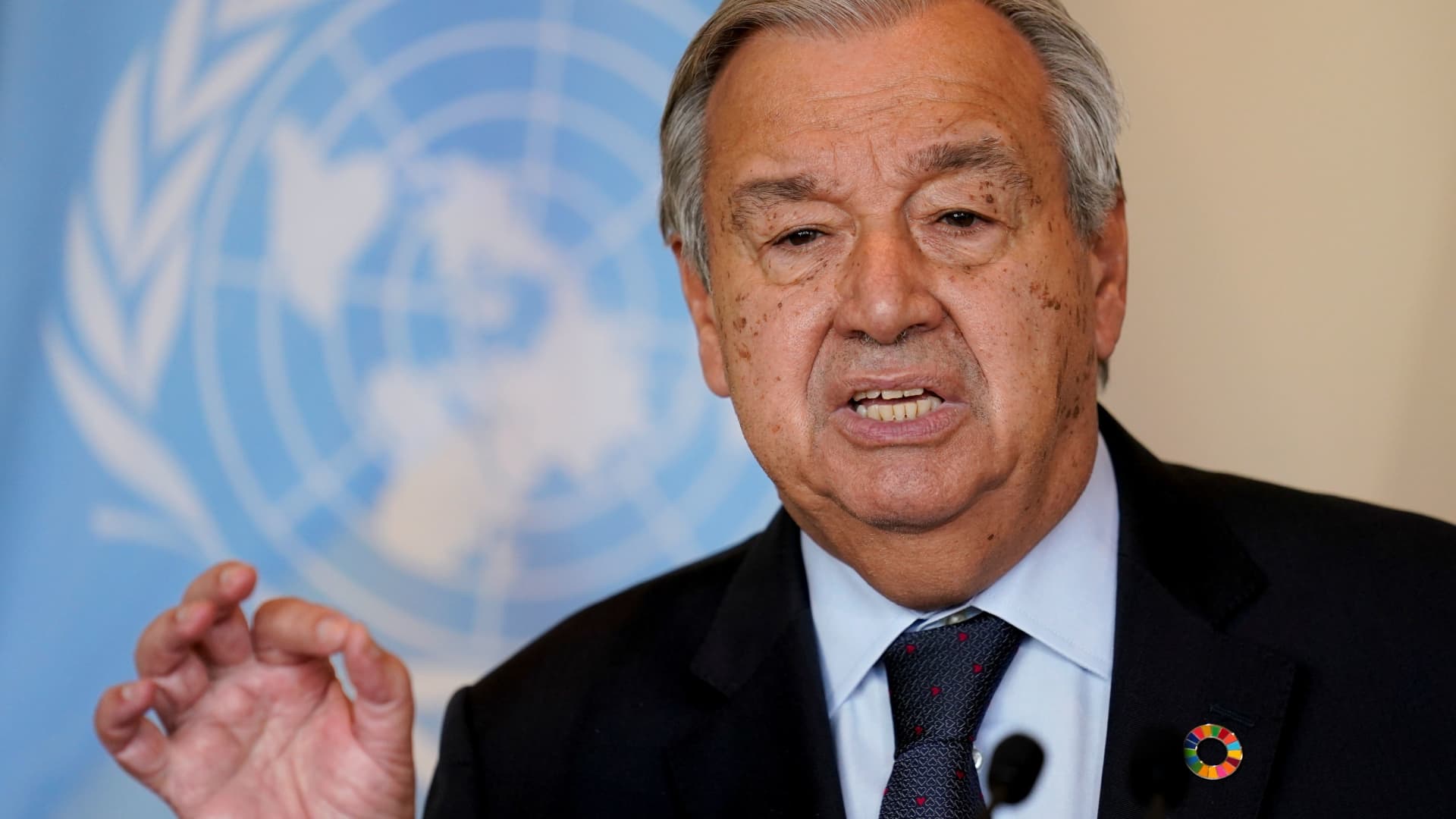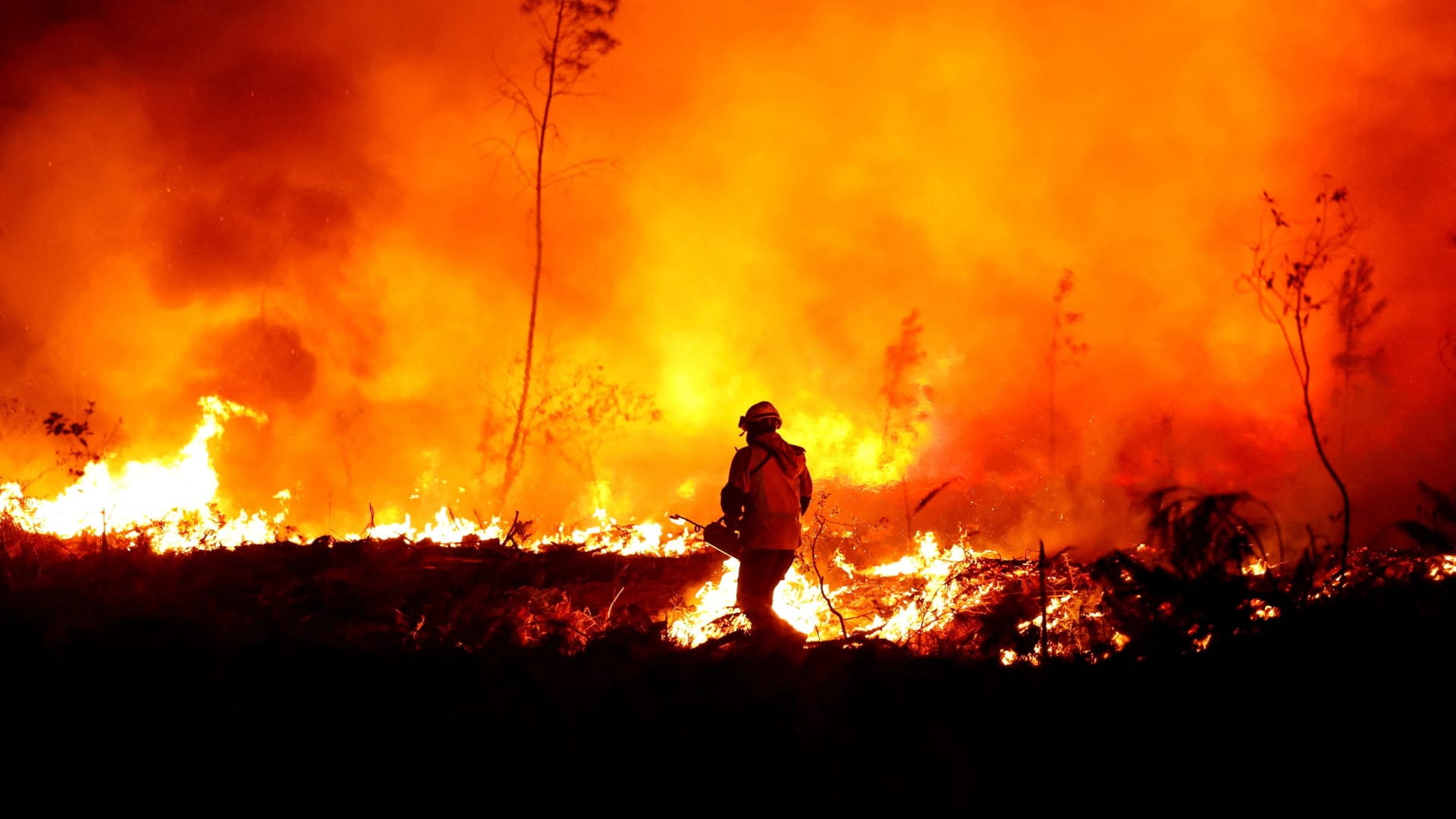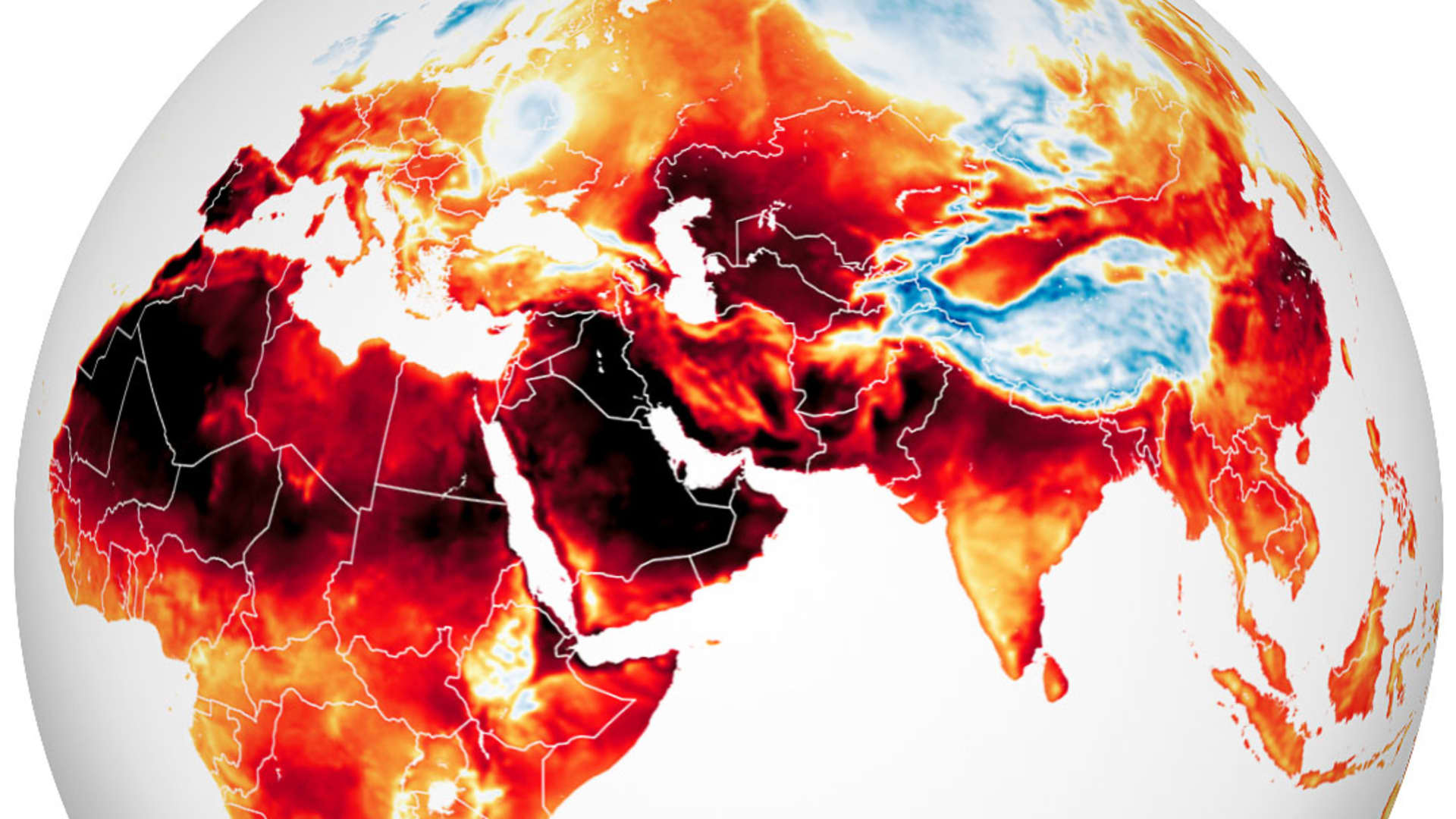
- "We have a choice. Collective action or collective suicide. It is in our hands," United Nations Secretary-General António Guterres told leaders from more than 40 countries who had gathered in Berlin for the Petersberg Climate Dialogue.
- Guterres called for global leaders to work together to reduce emissions from burning fossil fuels, invest in adaptation and for developed nations to make good on the funding they've promised to lower-income nations.
- Guterres made his comments as many nations around the world have been suffering from record high temperatures and raging wildfires.
United Nations Secretary-General António Guterres issued a dire warning to leaders from 40 nations gathered in Berlin to discuss climate change response measures as part of the Petersberg Climate Dialogue.
"Half of humanity is in the danger zone from floods, droughts, extreme storms and wildfires. No nation is immune. Yet we continue to feed our fossil fuel addiction," Guterres said in a video message to the assembled leaders on Monday.
"What troubles me most is that, in facing this global crisis, we are failing to work together as a multilateral community. Nations continue to play the blame game instead of taking responsibility for our collective future. We cannot continue this way," Guterres said.
Get Tri-state area news delivered to your inbox.> Sign up for NBC New York's News Headlines newsletter.
"We have a choice. Collective action or collective suicide. It is in our hands."

The leader of the United Nations laid out a multipronged approach for responding to climate change right now. Countries need to reduce their emissions by eliminating coal and moving toward emissions-free energy sources, like renewable energy. Second, there has to be more focus on adapting safely to the risks.
Money Report
Third, wealthy, developed nations need to make good on commitments to help undeveloped nations get access to the financing they need to fight climate change. "People in Africa, South Asia and Central and South America are 15 times more likely to die from extreme weather events," Guterres said. "This great injustice cannot persist."
On this front, Guterres said there should be a system in place to respond to climate loss and damage that is already affecting the poorest and most vulnerable.

Guterres made his comments as many nations around the world have been suffering from record high temperatures and raging wildfires.
For example, Britain's weather service, the Met Office, issued a red extreme heat warning for the first time ever for Monday and Tuesday. Elsewhere in Europe, wildfires are forcing thousands of people to flee their homes across portions of France and Spain.
Satellite data from NASA reveals just how widespread the heat waves have been recently. The image embedded below shows the surface air temperature on July 13 and was generated with help from data from the Goddard Earth Observing System.

"While there is a clear pattern of an 'atmospheric wave' with alternating warm (redder) and cool (bluer) values in different locations, this large area of extreme (and record-breaking) heat is another clear indicator that emissions of greenhouse gases by human activity are causing weather extremes that impact our living conditions," Steven Pawson, chief of the Global Modeling and Assimilation Office at NASA Goddard Space Flight Center, said in a written statement published alongside the map.
"Such extreme heat has direct impacts on human health, as well as having other consequences, including these fires that are occurring now in Europe and Africa, and which have been rampant over the past few years in North America," Pawson said.






